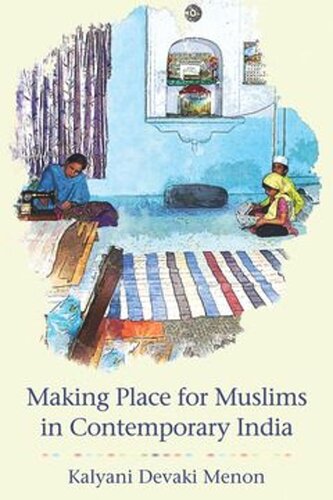

Most ebook files are in PDF format, so you can easily read them using various software such as Foxit Reader or directly on the Google Chrome browser.
Some ebook files are released by publishers in other formats such as .awz, .mobi, .epub, .fb2, etc. You may need to install specific software to read these formats on mobile/PC, such as Calibre.
Please read the tutorial at this link: https://ebookbell.com/faq
We offer FREE conversion to the popular formats you request; however, this may take some time. Therefore, right after payment, please email us, and we will try to provide the service as quickly as possible.
For some exceptional file formats or broken links (if any), please refrain from opening any disputes. Instead, email us first, and we will try to assist within a maximum of 6 hours.
EbookBell Team

4.3
8 reviewsMaking Place for Muslims looks at how religion provides an arena to make place and challenge the majoritarian, exclusionary, and introverted tendencies of contemporary India.
Places do not simply exist. They are made and remade by the acts of individuals and communities at particular historical moments. In India today, the place for Muslims is shrinking as the revanchist Hindu Right increasingly realizes its vision of a Hindu nation. Religion enables Muslims to re-envision India as a different kind of place, one to which they unquestionably belong. Analyzing the religious narratives, practices, and constructions of religious subjectivity of diverse groups of Muslims in Old Delhi, Kalyani Menon reveals the ways in which Muslims variously contest the insular and singular understandings of nation that dominate the sociopolitical landscape of the country and make place for themselves. Menon shows how religion is concerned with the divine and transcendental and with the anxieties and aspirations of people living amidst violence, exclusion, and differential citizenship. Ultimately, Making Place for Muslims allows us to understand religious acts, narratives, and constructions of self and belonging as material forces, as forms of the political that can make room for individuals, communities, and alternative imaginings, in a world besieged by increasingly xenophobic understandings of nation and place.